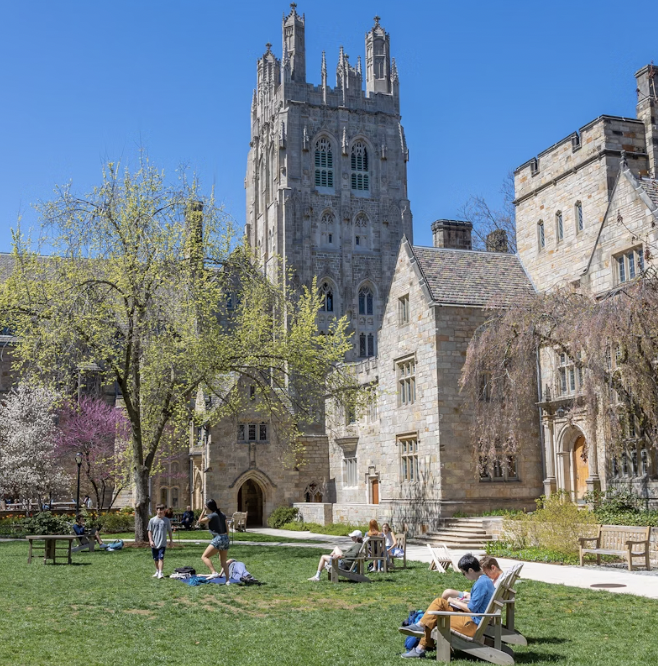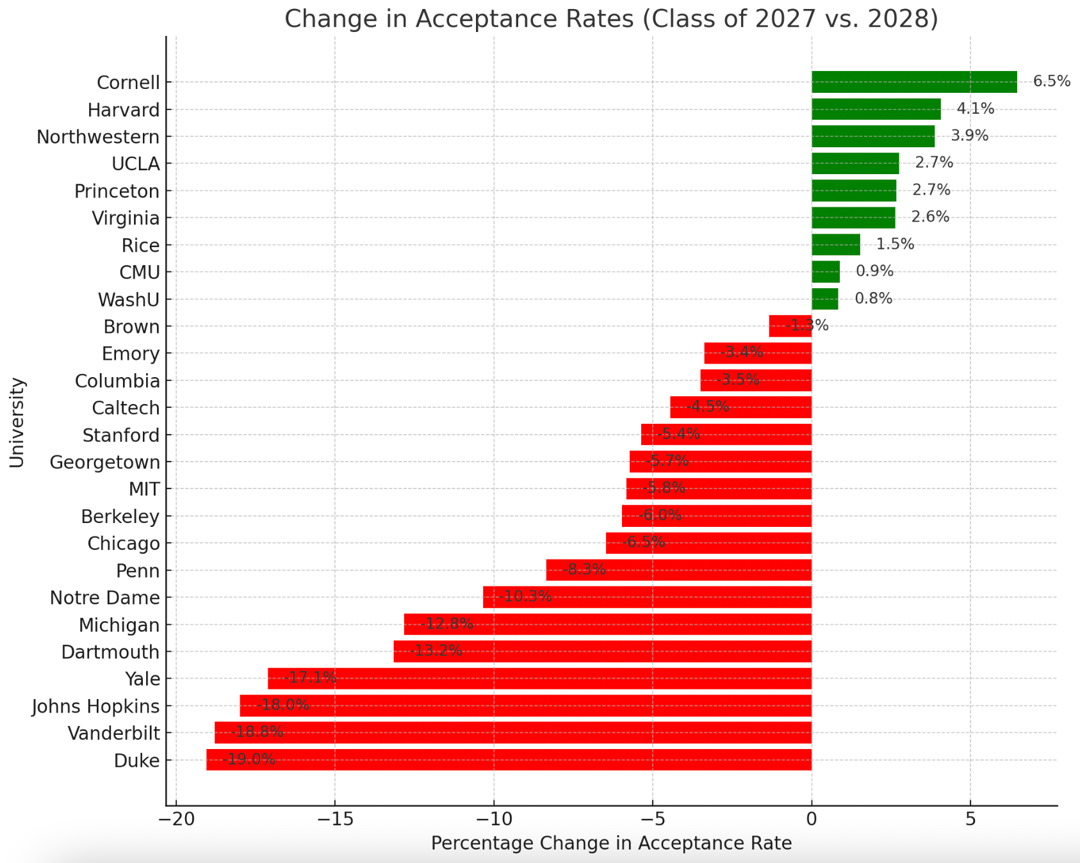Elite Colleges’ Declining Acceptance Rates
Ivy Brothers • 2025-02-13
Over the past few decades, the acceptance rates at top universities have been on a relentless decline, and the trend shows no sign of reversing. As application numbers surge and universities fine-tune their selection criteria, securing a spot at a prestigious institution has become an increasingly formidable challenge. With the release of early data for the Class of 2029, the outlook suggests that gaining admission to elite colleges will be even more competitive than before.
This tightening of acceptance rates can be attributed to several factors, including heightened global competition, increased accessibility of test-optional policies, and the growing appeal of a top-tier education amid economic uncertainty. The perceived return on investment of an Ivy League or equivalent degree remains high, pushing more students to apply and fueling the downward trajectory of acceptance rates.
Schools Experiencing the Most Significant Admission Rate Declines (2023–2024)
Below is a comparison of acceptance rates between the Class of 2027 and Class of 2028 at some of the nation's top-ranked universities:
The Biggest Movers: Why Some Schools Are Dropping Faster Than Others
While many top schools have seen modest declines in acceptance rates, institutions like Duke, Vanderbilt, and Johns Hopkins have experienced the most dramatic drops. These shifts are due to a combination of factors, including increased application volume, strategic enrollment management, and an enhanced focus on diversity and holistic admissions practices.
Additionally, universities that faced negative media attention or significant shifts in public perception, such as those grappling with free speech controversies or internal governance struggles, have responded by becoming even more selective. The aim is to preserve their prestige and attract students who align with their institutional mission.
What This Means for Applicants
For students aiming to secure a place at these highly selective institutions, the message is clear: differentiation is key. Gone are the days when a perfect GPA and standardized test scores alone could guarantee admission. Today’s successful applicants must demonstrate:
- A compelling personal narrative that connects their experiences, values, and ambitions.
- Impactful extracurricular involvement that showcases leadership, initiative, and commitment.
- Unique intellectual contributions, whether through research, independent projects, or entrepreneurial endeavors.
- A strong admissions strategy, including well-crafted essays and strategic school selection.
The Future of College Admissions: Will Acceptance Rates Ever Stabilize?
While some speculate that acceptance rates will continue their downward spiral, others believe we may reach an equilibrium as applicant numbers plateau and universities expand enrollment capacity. However, as long as elite college degrees retain their economic and social value, the competition will remain fierce.
One potential game-changer is the increasing adoption of alternative education pathways, such as industry-recognized certifications, elite online programs, and hybrid models combining traditional degrees with real-world experience. As employers begin to place more weight on skills over pedigree, we may see a shift in how students approach higher education in the coming years.
For now, one thing is certain: the college admissions landscape will continue evolving, and students must adapt accordingly to maximize their chances of success.
Visit our website: www.theivybrothers.com
Schedule a consultation: https://tally.so/r/3Edv7L
See More Posts
Ivy Brothers
Copyright © 2021 Ivy Brothers, Inc. All rights reserved.
Company
hello@theivybrothers.com




